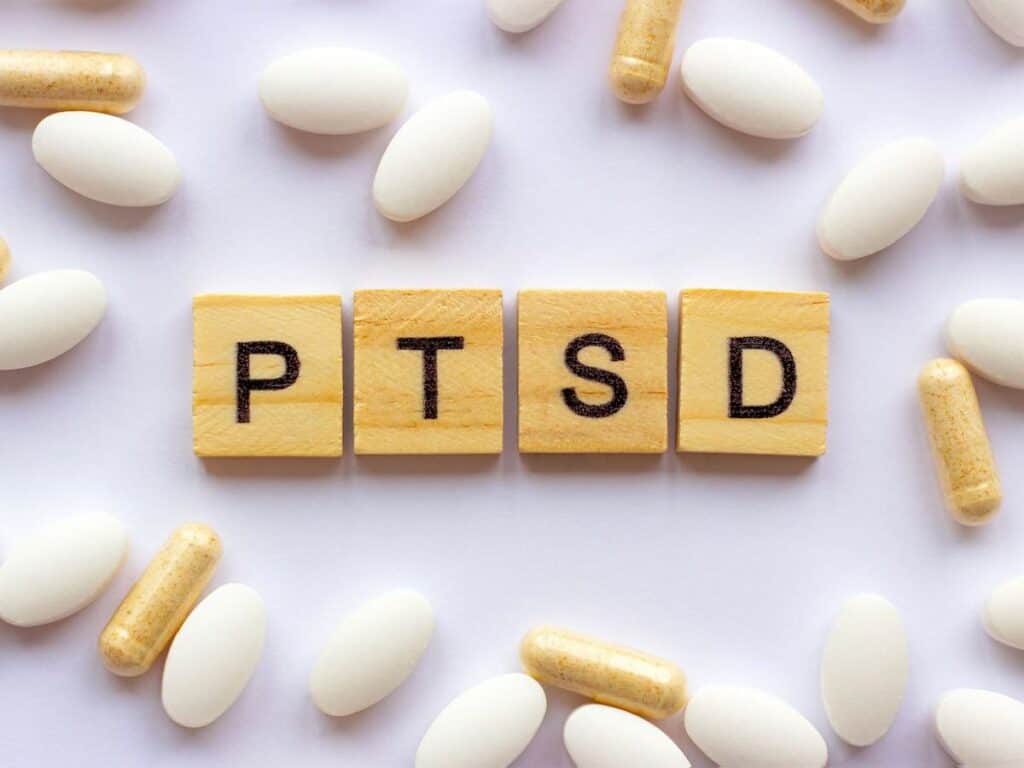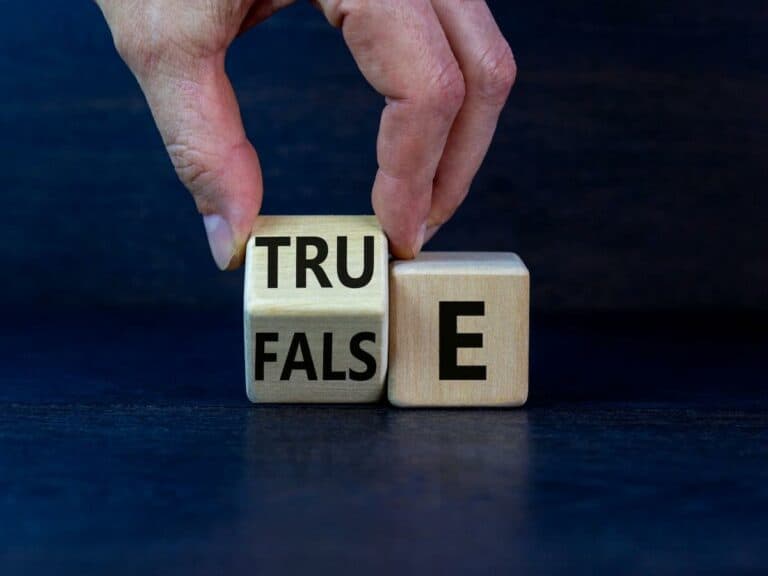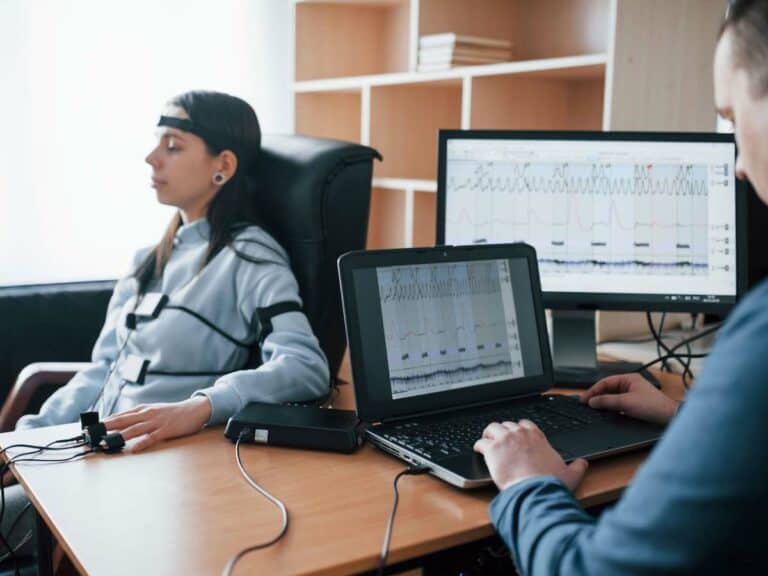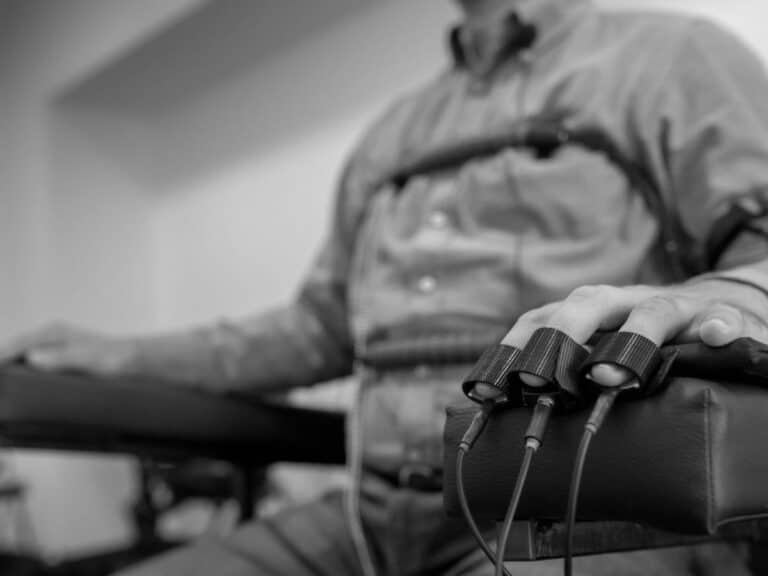Can PTSD Affect a Polygraph?
You once suffered from an extremely traumatic event, which has led to your being diagnosed with PTSD. And since you are on edge most of the time, especially when someone or something leaves you recalling or relieving the cause of your PTSD, you may be wondering if it can have any effect on a lie detector exam.
Someone who has PTSD may obtain an inconclusive or false positive polygraph exam result. The same is true if the mental disorder is under control with the help of medications, which can affect an individual’s physiologic processes. Some people with PTSD are not allowed to undergo a lie detector test.
Don’t stop reading now if you suffer from PTSD or someone you know has it and a scheduled polygraph examination for whatever purpose is just around the corner.

All About PTSD
Basically, PTSD is a mental disorder that develops in some individuals who have experienced something scary, dangerous and shocking. While it’s natural for people to be afraid during and immediately after a traumatic situation, those with PTSD remain feeling the same even after the event has come to an end.
While it’s a type of anxiety disorder, PTSD is classified under trauma- and stress-related disorders.
Such is according to the 5th edition of the Diagnostic and Statistical Manual of Mental Disorders (DSM-5). Simply put, just like other editions, the DSM-5 is the standard classification of mental disorders used as a reference by mental health professionals in the US as well as other countries.
The following are some of the events that can lead to PTSD:
- Childhood and domestic abuse
- Death of someone close to the individual
- Physical or sexual assault
- Serious accidents
- Severe health or medical problems
- Torture
- War and conflict
- Work-related trauma
To date, mental health experts do not fully understand why some individuals develop PTSD while others don’t. However, they agree that certain factors can make some more likely to end up with PTSD.
Someone who had anxiety or depression in the past has a higher chance of having PTSD after severe trauma. The same is true for a person who does not receive much support from family and friends. Experts say that PTSD also runs in families, which means that a child whose parents have a mental health problem may suffer from it.
According to the National Center for PTSD (NCPTSD), there are 4 types of PTSD symptoms, although they may not be exactly the same for anyone who suffers from the said mental disorder:
- Reliving the event
- Avoiding things that remind one of the event
- Having more negative thoughts and feelings than before the event
- Feeling on edge
It’s not uncommon for many people who have PTSD to also have a number of other problems. For instance, some of them may have mental health concerns such as anxiety, depression or phobias. There are also those who may develop destructive behaviors such as drug abuse and alcohol misuse.
Physical symptoms include headaches, dizziness, chest pains and stomach aches may be experienced, too.
A report by the National Health Service (NHS) says that numerous studies show that people with PTSD have abnormal levels of stress hormones. Even with the absence of a danger that can trigger the fight or flight response, it appears that the bodies of PTSD sufferers continue to produce high amounts of stress hormones.
Needless to say, it’s because of this why PTSD can affect the results of a polygraph examination. With constantly elevated stress levels and agitated physiologic responses, the test may lead to an inconclusive or a false positive report.

PTSD Medications
There are various medications prescribed to individuals who have PTSD. Some of them are selective serotonin reuptake inhibitors (SSRIs) and serotonin-norepinephrine reuptake inhibitors (SNRIs). Their mode of action is to affect certain neurotransmitters (chemical messengers) and hormones.
SSRIs work by altering the amount of serotonin in the body. On the other hand, SNRIs work by affecting the amount of serotonin and norepinephrine instead of just serotonin.
Either way, one thing remains true: both SSRIs and SNRIs are antidepressants.
So, in other words, medications commonly prescribed for people with depression are also usually prescribed for those with PTSD. Some of the most proven effective are the following:
| GENERIC NAME | BRAND NAME |
| Fluoxetine | Prozac |
| Paroxetine | Paxil |
| Sertraline | Zoloft |
| Venlafaxine | Effexor |
Because the above-mentioned medications work by regulating mood, they can lower anxiety in those who have PTSD. Like drugs for high blood pressure or hypertension, the kinds that are taken by PTSD sufferers can cause lowered blood pressure. And because of this, the result of a polygraph test may become contaminated.
On the other hand, it’s quite common for antidepressants to increase the heart rate but decrease the heart rate variability. This means that the heart has very little to no response to changes.
With decreased blood pressure and heart rate variability and increased heart rate, it doesn’t come as a surprise that an individual with PTSD and taking medications for it, too, may fail his or her lie detector test or confuse the polygraph examiner while evaluating the chart, which can easily lead to an inconclusive report or an error.
However, an experienced examiner will deem the individual unfit to take a polygraph exam during the pre-test.
Traumatic Memory
Simply put, traumatic memory is a memory formed after an experience that causes high levels of emotional stimulation and the activation of stress hormones. Unlike any other memory, it’s something that becomes consolidated and long-term. Triggers include people, places or situations, depending on the root cause of the traumatic memory.
Individuals with PTSD may or may not have traumatic memories.
Psychologists from the University of California, Los Angeles (UCLA), for instance, say that adults can develop PTSD even if they have no explicit memory of an early childhood trauma that has caused the disorder.
Those with traumatic memories are basically forced to relieve the entire experience when strapped to a polygraph machine and asked questions that have something to do with the reason behind the development of their PTSD. Victims of sexual assault, for instance, are not unlikely to fail a lie detector exam.
According to a UW Medicine report, up to 75% of sexual abuse survivors have PTSD a month after the incident. A university professor from the Medical University of South Carolina and investigator, meanwhile, says that more than 1 out of 10 rape victims still suffer from PTSD today.
As a result of this, there’s the 2005 Violence Against Women Act.
The said act states that prosecutors and law enforcement investigators may not request or require the use of a lie detector test or any other similar truth-telling exams with sexual assault victims as a condition of initiating or continuing an investigation or prosecution.
It can be extremely stressful as well as embarrassing and degrading for them to recall what happened. Some of them in fact feel like they are going through the same experience when questioned about it by investigators.
Read Next: What Happens If You Fail Polygraph Test
Just Before You Have Your Polygraph Test
Like many other physiological and psychological conditions, PTSD can affect a polygraph. This is true whether it’s under control with the help of medications or left untreated. In some instances, the presence of PTSD may cause the examiner to declare that the individual is not suited to take a lie detector test.
Otherwise, the exam is likely to result in an inconclusive report or lead to an error, which can either be a false positive or a false negative, which usually happens when the person is taking medications for PTSD.
Related Questions
Can you pass a lie detector test by taking Xanax?
Xanax, whose generic name is alprazolam, is a fast-acting tranquilizer commonly used to deal with anxiety and panic disorders. Popping Xanax in your mouth is not a good idea before taking a polygraph test — there will be no lie detector test to begin with as you will be considered unfit to take it.
Can beta blockers beat a polygraph?
Simply put, beta blockers are drugs used to control heart rhythm, treat angina, and reduce high blood pressure. The intake of a beta blocker before undergoing a lie detector test is likely to result in an inconclusive result because of blunted physiologic processes. Or it can also result in a false negative.






